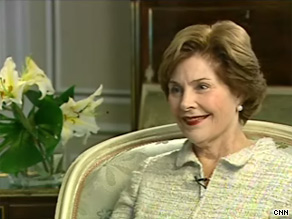
UNESCO Director General Irina Bokova gave an informative briefing on UNESCO's actions with regard to Climate Change during the Copenhagen meeting earlier this month.
This blog seeks to spotlight noteworthy UNESCO education and culture programs; it emphasizes links between the United States and UNESCO.

 For those readers who are Christians, may today's celebrations by happy, healthy and bright. For others, may you too have a happy, health and bright day!
For those readers who are Christians, may today's celebrations by happy, healthy and bright. For others, may you too have a happy, health and bright day!


 The French Premiere of Invictus is being hosted by UNESCO in Paris on 11 January 2010. The objective is to highlight the power of “sport for reconciliation”, and the importance of the fight against racism to the cause of peace and conflict resolution.
The French Premiere of Invictus is being hosted by UNESCO in Paris on 11 January 2010. The objective is to highlight the power of “sport for reconciliation”, and the importance of the fight against racism to the cause of peace and conflict resolution.UNESCO will not be soliciting applications for the Young Professionals Program for 2010. We do anticipate that the program will restart for 2011 and therefore a new application will be available during the fall of 2010.
The Annual Meeting Teleconference will take place on Thursday, December 17.
The meeting is scheduled to begin at 10am and last until approximately 1pm. There is a fifteen minute period of time set aside for members of the public to either make comments or ask questions. That portion of the call is scheduled to take place at approximately 12:25pm.
You may still be able to participate by contacting the National Commission secretariat in the Department of State.
 There are a great many videos available on this website, all officially provided by UNESCO. They appear to be primarily focused on cultural heritage, and they seem to be a few minutes in length each.
There are a great many videos available on this website, all officially provided by UNESCO. They appear to be primarily focused on cultural heritage, and they seem to be a few minutes in length each. This publication presents the results of a joint international research project with the aim of providing a systematic cross-cultural analysis of fundamental problems and actual perspectives of interfaith dialogue between Christianity and Islam, as seen from the perspectives of Russia and Lebanon.
This publication presents the results of a joint international research project with the aim of providing a systematic cross-cultural analysis of fundamental problems and actual perspectives of interfaith dialogue between Christianity and Islam, as seen from the perspectives of Russia and Lebanon.
 Irina Bokova, the new Director General of UNESCO addressed the Executive Board last week, her first opportunity to do so since her investiture. She previously served as the representative of Bulgaria to the Executive Board and so has inside knowledge of the functioning of the Board.
Irina Bokova, the new Director General of UNESCO addressed the Executive Board last week, her first opportunity to do so since her investiture. She previously served as the representative of Bulgaria to the Executive Board and so has inside knowledge of the functioning of the Board.With our fields of competence in education, culture, natural science, social and human sciences, communication and information, combined with our two priorities – gender equality and Africa – we are in a unique position in the multilateral arena, in order:
- first, to assist in harnessing globalization more in the service of humanity andsustainable development and in attaining internationally recognized developmentobjectives, in particular the Millennium Development Goals;
- second, to make a difference internationally, and at the national level in particular, through effective high-quality activities in our fields of competence, in which we must play an international leadership role;
- third, to refine our unique role in the multilateral system, as an Organization that promotes and facilitates dialogue among decision-makers, scientists, the academic world, intellectuals, members of civil society, journalists, spiritual leaders and many others; this must have a definite impact on the overriding goal of our Constitution, which is to construct the defences of peace in the minds of men and women;
- fourth, to continue to contribute fully to the reform of the United Nations, in particular at the country level, in order to highlight our capability to meet the Member States’ priorities and demands.
 Source: Radio Free Europe/Radio Liberty
Source: Radio Free Europe/Radio Liberty Recently, CNN Zain Vargee interviewed Laura Bush in Paris where she was attending a UNESCO meeting. I quote from the transcript:
Recently, CNN Zain Vargee interviewed Laura Bush in Paris where she was attending a UNESCO meeting. I quote from the transcript:Zain: You're here in Paris, for an important event, you're going to be talking about literacy worldwide. What is your one key message?
Laura: Well, the one key message is how important it is to read and how governments really need to focus their priorities on making sure everybody in their countries can read and that's what UNESCO does. UNESCO is the big U.N. agency that has education as part of its charge and this is the decade of literacy and the decade will be over in 2012 so we've got a lot of work to do to make sure people learn to read between now and then.
Zain: How do you make governments have literacy a priority? Because if you look at Africa, you look at Asia and so many other places around the world, governments have to struggle with so many other things there's corruptions and there's.... how do you do it?
Laura: Well, what UNESCO is trying to do is focus on the 34 most illiterate countries the countries with the highest rates of illiteracy. They have two programs, one is an assessment program, so they will help governments really assess how many people are illiterate who they are, where they are and what they can do to intervene in their lives... and then the other program out of UNESCO is called LEAP and it's an adult literacy program and its an adult literacy program and of course most of the people who are illiterate in the world... and they think... 700 million people who are illiterate I think it is, it's really a lot around the world that are illiterate... Watch the full interview with Laura Bush »
Zain: So it's really a way to put pressure on governments?
Laura: That's right and to help them in whatever way they can, because you're right, the countries with the highest illiteracy are also the poorest, they are the countries with the least capacity to be able to build education systems.

